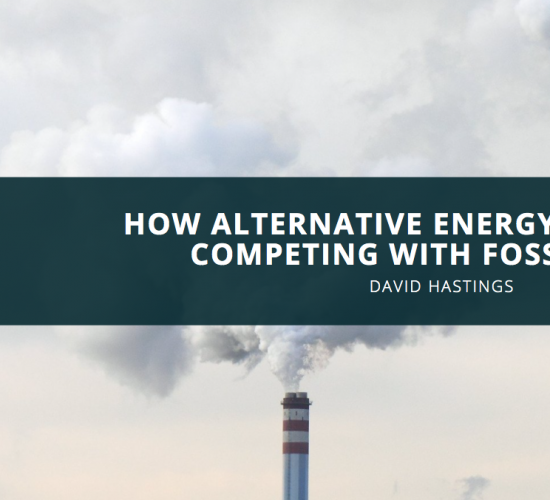David Hastings Professor and Marine Science Expert Discusses How Alternative Energy Sources are Competing with Fossil Fuel

“It’s a common and dated misconception that fossil fuels are somehow cheaper than renewable sources of energy,” says David Hastings, professor and marine science expert. “That may have been true a decade ago when alternative technology was still developing, but there are now electrical power plants using wind and solar power that are less expensive than coal fired plants – and by a large margin!”
Despite this development, David Hastings professor and environmental advocate admits there are still some key challenges to overcome. First, alternative energy sources are dependent on variable energy inputs. And secondly, public opinion and policy which have become increasingly partisan.
“We have to educate and change minds to encourage appropriate policy changes,” says David Hastings, former Eckerd College professor of environmental science. “And with policy change comes widespread adoption and investment in even more efficient and productive technology.”
What’s the Difference in Cost Between Alternative Energy and Fossil Fuels? David Hastings, Professor of Marine Science Explains
“The cost comparison between fossil fuels and renewable energy sources is often unfair in a way,” says David Hastings, professor of marine science and environmental advocate. He goes on to explain that while large amounts of money are still required to invest in infrastructure, scaling, and installment for renewable energy structures, power plants that run on coal have been established for decades.
“It’s new financing versus the costs of maintenance and operation. Of course, fossil fuels look cheaper from that perspective,” says Professor David Hastings. “But when you compare the expense of new generation projects – a new coal plant versus a new solar plant – almost every time the renewable energy option comes out as the most affordable option.”
Since new renewable energy plants are often competing with fossil fuel systems that are decades old and which have already paid off their debt and their investors, it’s important to look at life expectancy as well.
While a coal plant may be able to produce cheap electricity for the extent of its remaining lifespan, it will eventually be decommissioned. Many existing coal-fired electricity plants will reach the end of their service in the next few decades. By the time this happens, it will almost certainly be cost-inefficient to build a new one in place of a renewable energy option.
“What we have to do now is focus on energy storage, so we have a viable answer to those who claim that fossil fuels have the advantage when it comes to reliable electricity output. And in the meantime, the education of our policymakers is crucial. Talk to your elected officials in your community, at the state and national level, and let them know that you want to see change,” says David Hastings, retired Eckerd professor.
Additional Information
- David Hastings
- David Hastings
- David Hastings